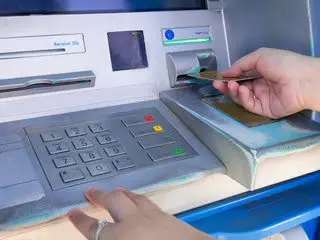Jamaica’s automated banking machines (ABMs) are undergoing a quiet revolution, reshaping how cash is accessed across the island. New data from JETS, the entity managing the MultiLink network, has revealed a growing focus on smaller, everyday withdrawals, with most transactions falling well below the $25,000 mark. This shift highlights changing consumer behavior and offers insights into the financial priorities of Jamaicans.
Over 42% of ABM withdrawals are for amounts between $100 and $5,000, with an additional 40% involving sums up to $25,000. This heavy reliance on modest withdrawals signals a clear demand for convenient access to cash for daily needs. According to Edmundo Jenez, CEO of JETS Limited, these trends were central to a decision last year to cap maximum ABM withdrawals at $100,000 per transaction.
“The reality is that most users are withdrawing smaller amounts of cash,” said Jenez. “This adjustment has helped ensure machines are stocked longer and available for those who need them most.”
While some customers still require large withdrawals, Jenez noted these instances are rare, accounting for only a tiny fraction of overall usage. High-value users now face additional steps to access larger sums, as the reduced withdrawal limits aim to balance the needs of the majority with operational efficiency.
Adapting to New Norms in Cash Distribution
Inflation and shifting consumer demands are driving further changes in how cash circulates through the system. Lower-denomination notes like the $100 bill are being phased out, as they struggle to meet the practical needs of today’s transactions. By late 2024, only 66 ABMs were still dispensing $100 notes, and this number is expected to dwindle further in the coming months. Machines now favor higher denominations such as $500, $1,000, and $2,000 bills to meet the demand for larger cash volumes with fewer notes.
“This change reflects the broader economic landscape,” Jenez explained. “Higher-denomination notes are simply more practical for today’s transactions.”






